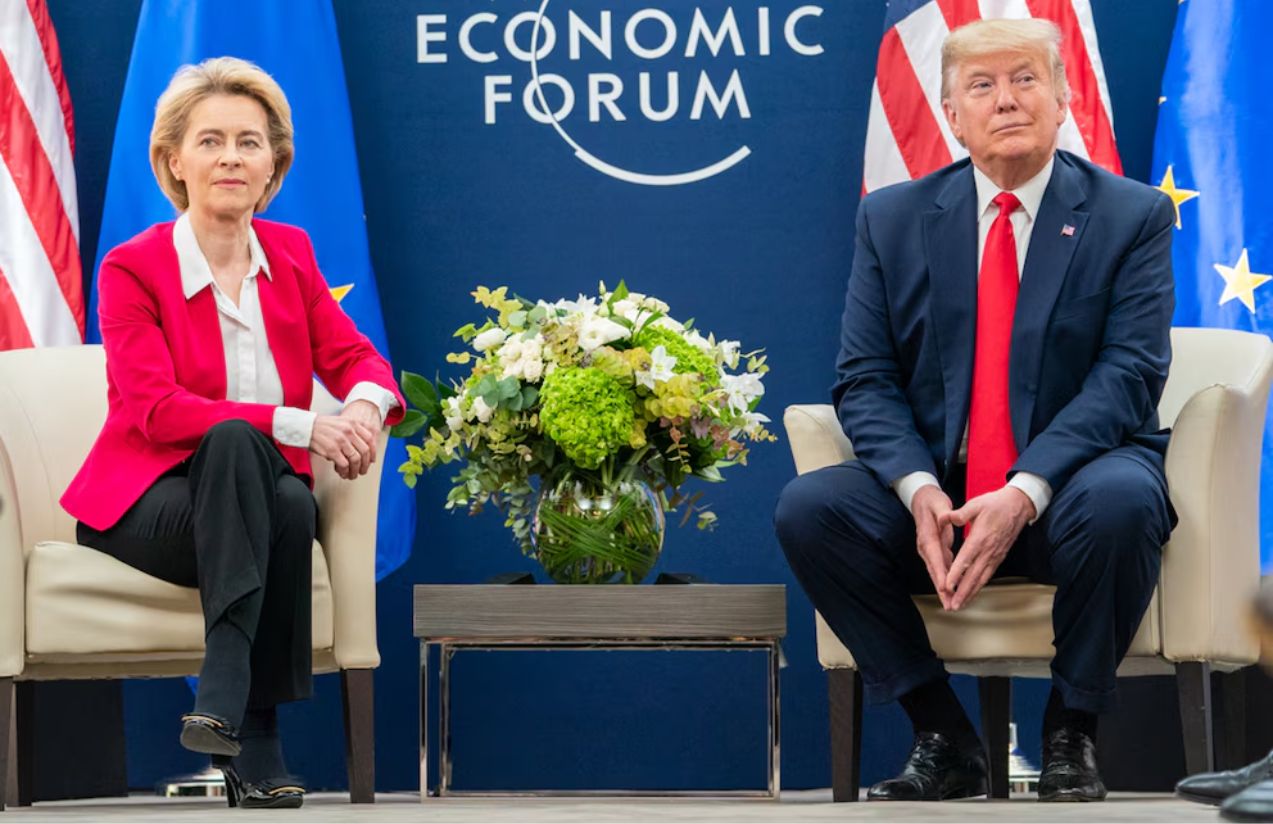U.S. President Donald Trump announced Saturday the imposition of 30% tariffs on imports from Mexico and the European Union, a measure set to take effect on August 1. The announcement was made public through two letters posted on the social media platform Truth Social.
In his statements, Trump justified the tariffs on Mexico by citing what he described as a lack of action in addressing the fentanyl crisis. According to the president, the issue stems from “Mexico’s failure to stop the cartels,” which he described as “the most despicable people ever to set foot on Earth.”
“Mexico has helped me keep the border secure, BUT what they’ve done is not enough,” Trump stated. “They still haven’t stopped the cartels that want to turn all of North America into a drug trafficking backyard. Obviously, I can’t let that happen.”
The new tariffs will include a general 30% rate, with additional duties for specific sectors. Trump also warned that products attempting to circumvent these measures could face even higher penalties.
The president offered an alternative for Mexican companies, saying there would be no tariffs if products were manufactured within the United States. “We will do everything we can to ensure those requests are approved quickly, professionally, and routinely within weeks,” he added.
Trump warned that if Mexico retaliates with its own tariffs, any increase would be added to the existing 30%. The new measure represents an increase from the previously imposed 25% on Mexican goods. However, products covered under the United States-Mexico-Canada Agreement (USMCA) remain exempt.
Canada also received a similar letter setting tariffs at 35% on its exports to the U.S.
For the European Union, the 30% tariff marks an increase from the 20% announced by Trump in April during ongoing negotiations with the bloc. Brussels and other economies had anticipated higher tariffs starting from a 10% base last week, but the U.S. administration extended the deadline to August 1.
Since the beginning of the week, Trump has sent letters to more than 20 countries detailing the new tariffs to be applied to each.
European Commission President Ursula von der Leyen criticized the measure and expressed concern over its impact on transatlantic supply chains. “Imposing 30% tariffs on EU exports would disrupt vital transatlantic supply chains, to the detriment of businesses, consumers, and patients on both sides of the Atlantic,” she said in a statement.
Despite the criticism, von der Leyen reiterated the EU’s willingness to continue negotiations: “We remain ready to work toward a deal before August 1. At the same time, we will take all necessary steps to safeguard the EU’s interests, including adopting proportional countermeasures if needed.”
Meanwhile, the Mexican government called the decision “unfair.” According to a joint statement from the Ministries of Economy and Foreign Affairs, the tariffs were discussed during a bilateral meeting held Friday in the U.S. “We stated at the table that this was an unfair move and that we do not agree with it,” the statement said.

